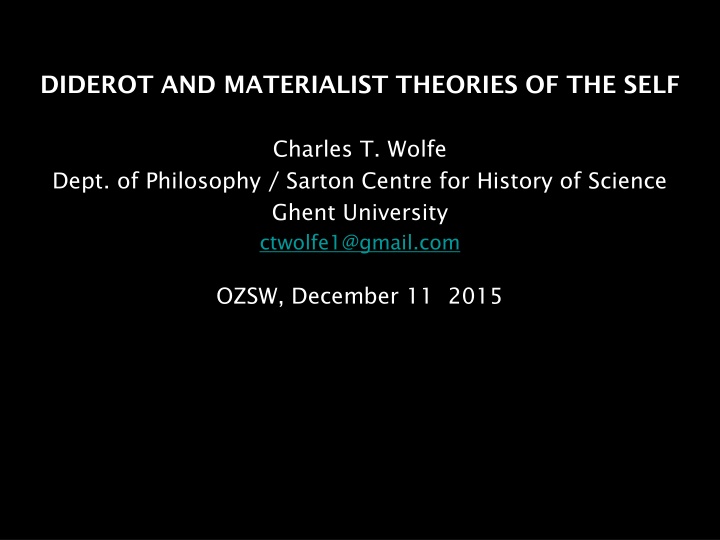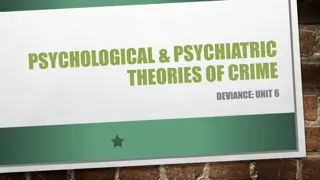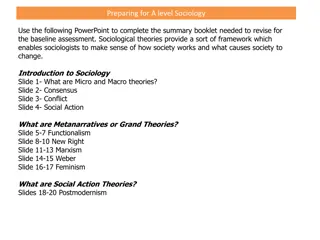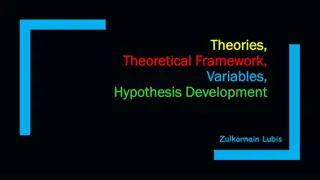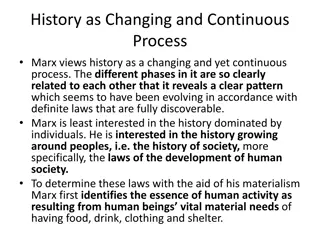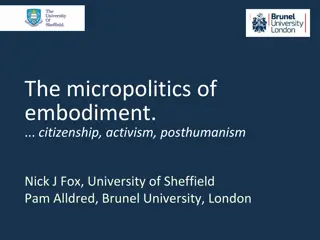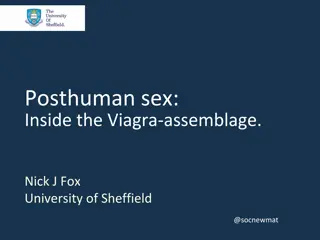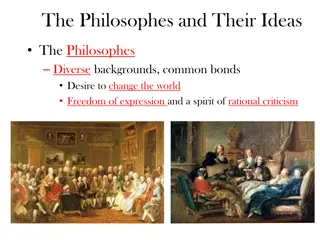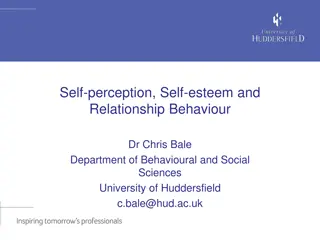Materialist Theories of the Self: Diderot's Perspective
Materialism, as explored by Diderot and other philosophers, delves into the intricate relationship between mind and matter. Diderot questions the nature of the self and challenges Cartesian anti-materialist views. He considers the self as an organic unity, emphasizing the interplay of external relations in defining individuality. This analysis reflects a shift towards naturalizing the concept of selfhood and reevaluating traditional notions of substance and subjectivity.
Download Presentation

Please find below an Image/Link to download the presentation.
The content on the website is provided AS IS for your information and personal use only. It may not be sold, licensed, or shared on other websites without obtaining consent from the author.If you encounter any issues during the download, it is possible that the publisher has removed the file from their server.
You are allowed to download the files provided on this website for personal or commercial use, subject to the condition that they are used lawfully. All files are the property of their respective owners.
The content on the website is provided AS IS for your information and personal use only. It may not be sold, licensed, or shared on other websites without obtaining consent from the author.
E N D
Presentation Transcript
DIDEROT AND MATERIALIST THEORIES OF THE SELF Charles T. Wolfe Dept. of Philosophy / Sarton Centre for History of Science Ghent University ctwolfe1@gmail.com OZSW, December 11 2015
Materialism: about mind or matter? materialists argue either that man s soul is matter, or that matter is eternal and is God; or that God is just a universal soul distributed throughout matter which moves and arranges it, either to produce beings or to create the various arrangements we see throughout the universe. Naigeon, Materialists (Atheists), in Enc. M thodique, 1794, 208.
18C Cartesian anti-materialist vulgate half of a self is a contradictory absurdity, while a portion of matter that cannot be divided is also a contradiction: how can mind and matter not be different substances ? (Necker 1798 III, 88).
Planks of a materialist theory of self (mix and match): externalism ontology of relations ) as a metaphysical position (aka the biologization of individuality (organism = individual) the equation of brain and self (naturalization of selfhood)
Externalism: no fact is only accessible to a single person (Dretske 1995, 65) The order and the connection of ideas is the same as the order and the connection of things (Spinoza, E IIp7) [F]or Spinoza the individual is neither substance nor subject [but ] is a relation between an outside and an inside constituted by this very relation (there is no absolute interiority of the cogito opposed to the absolute exteriority of a world). This relation constitutes the essence of the individual, comprised of its own existence-power. . . . It is a variable power, precisely because the constitutive relation between inner and outer is unstable, not established. The passions are not, therefore, the property of an already given human nature, but they are relations constituting the human individual; their locus is not interiority, but the space between individuals (Morfino 2006, 118)
(materialist) organic unity without regard for the sum of elements of which I am composed, I am one, and a cause only has one effect; I have always been one single cause [une cause une], thus I have never had more than one effect to produce; my duration is thus nothing more than a succession of necessary effects. In that sense, I cannot do otherwise than myself or be anything other than myself. (Diderot, Jacques le fataliste, DPV XXIII, 190, 28)
materialism as the death of interiority? Materialism as a working philosophy, used as a tool in the scientific investigation of the material universe, is appropriate Intended for the objective analysis and description of the world of externals, it yields disastrous results when applied to the inner, subjective world of human nature, human emotions and highly effective. thought, and human (Hill 1968, 90).
Materialist embodiment? The Jansenist publication) declared in November 1758 that Helv tius De l Esprit should really have been entitled On Diversely Organized Matter, and even better, . . . On the Flesh, Particularly the Dirtiest, Most Impure Flesh. Nouvelles eccl siastiques (an important
Montesquieu on Spinoza Spinoza deprived him of everything personal, so he could no longer find that self in which I was so interested ; why glory? why shame? ... in the universality of substance, both the lion and the insect have come and gone indistinguishably, both Charlemagne and Chilp ric. (cit. Citton 2006, 177)
Materialist retort to 1st-personness The epistemological access to some phenomenon does not mean that the accessed nonphysical in nature. It means only that someone possesses an information-carrying connection to that phenomenon, a connection that others lack existence of a proprietary, first-person phenomenon is causal (P.M. Churchland 1995, 198)
